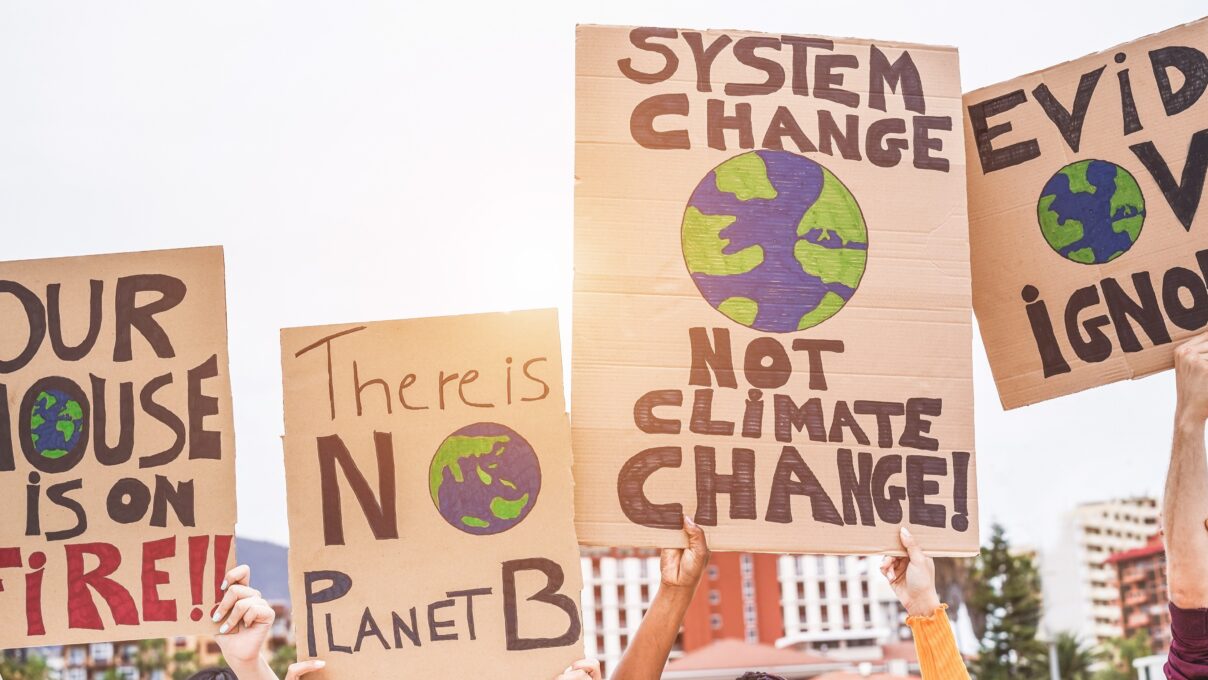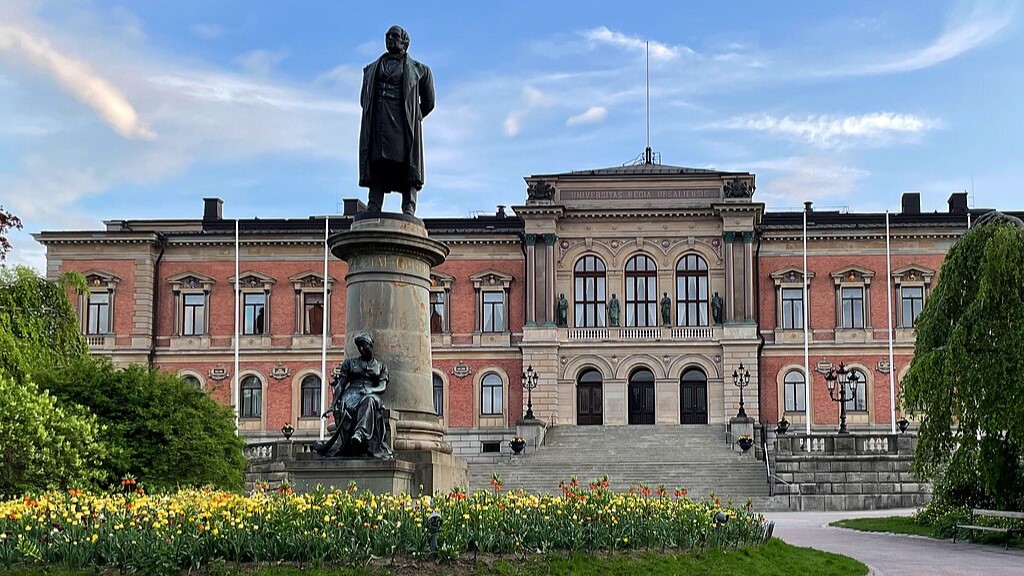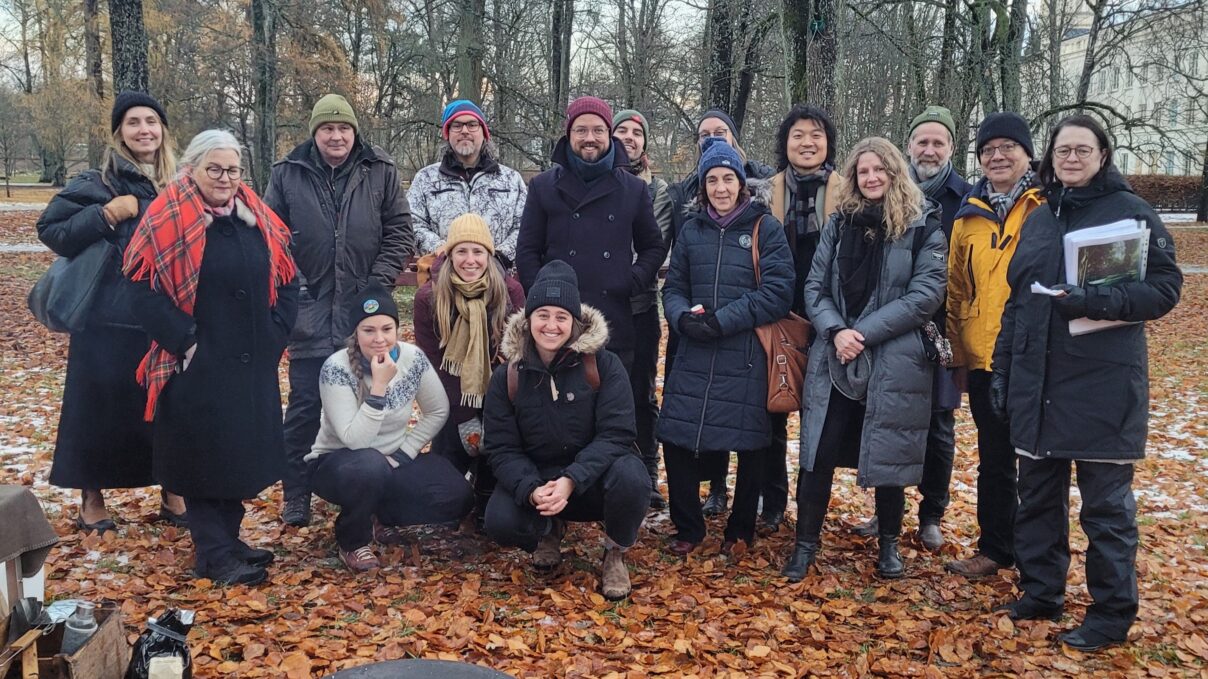Using Environmental Humanities to help solve the climate crisis

Professor Robert Song from our Department of Theology and Religion and Dr Simona Capisani from our Department of Philosophy were recently part of a delegation visiting our partner institution Uppsala University in Sweden to discuss Environmental Humanities collaborations.
After several tense final hours, COP28’s two-week negotiations have come to a close. Given the dynamics of these international negotiations, the final points of agreement are always a potpourri of exciting and disappointing results. While the agreements of COP28 are not new in this regard, the final agreement has made history. It is the first time in these climate negotiations that there is an explicit statement that the world must “transition away” from fossil fuels in a “just, orderly and equitable manner.” Yet, the current language of “transition away” is far more ambiguous than a commitment to “phase-out fossil fuels” and leaves loopholes for the fossil fuel industry to potentially exploit.
The public language around COP meetings constantly refers to the need to ‘follow the science’. Yet a moment’s reflection shows the complexity of this. The natural sciences can model possible climate futures and show us the carbon constraints within which we must work, and engineering can devise technical solutions to some of the practical issues we are faced with. On the other hand, they cannot tell us the meaning the climate and biodiversity crises have for us as human beings or help us understand what it means to live well in this time.
The current language of “transition away” is far more ambiguous than a commitment to “phase-out fossil fuels” and leaves loopholes for the fossil fuel industry to potentially exploit.
This is where the humanities – particularly the orientation to ask questions about sustainability that are the focus of the environmental humanities – have a lot to contribute to the public debate. From history we can learn how people across the world have faced environmental catastrophes in the past. From the study of global cultures, we can appreciate how Western-centred attitudes and assumptions about the nature of the modern world distort understandings of different perspectives and world views. Studying literature and practising creative writing helps us understand how we engage overwhelming crises with our imaginations. Philosophers provide critical insight about the underlying concepts, value commitments, and assumptions that are at play in decision making, in how challenges and solutions are framed, and can raise questions about the nature of our obligations and what actions are necessary to meet these obligations. Theology and religious studies push questions about existential meaning and the nature of loss, grief, and hope.
How humanities can inform global debates on health, technology and ecology
Durham is one of the world’s top universities for studying and researching in the environmental humanities. We were ranked 32nd in the world for Arts and Humanities in the QS World University Rankings 2024. We were also ranked 19th in the world for Environmental and Social Sustainability In the QS World University Sustainability Rankings 2024. We have a culture of close relationships between departments and faculties across the university, which facilitates interdisciplinary research. We have a newly launched MA in Environmental Humanities, which includes modules from across the humanities and social sciences. The course introduces students to the intellectual frameworks and debates that will be needed to help human beings and societies to flourish in the new era of the Anthropocene.
The environmental humanities is one element in the commitment to Transformative Humanities being developed in our Faculty of Arts and Humanities. The same kind of interdisciplinary insights are being explored in relation to medical humanities, digital humanities, and to cultural and ecological heritages from local to global levels in the heritage ecologies. Each of these demonstrates the role that the humanities can play in addressing the greatest challenges of our time and transforming our response to them.
Exploring solutions to the climate crisis through international partnerships

This kind of research and education can’t be done by universities acting in isolation. Partnerships with other universities and organisations are crucial to success. That’s what took a group of us from Durham to the University of Uppsala in Sweden in November. Uppsala is another member of the international Matariki network of universities, and it has a long history of effective research and innovative pedagogy in relation to environmental issues. We aimed to find out whether there were viable possibilities for joint research and teaching across our shared interests and explore links that could form the basis for collaborations and potential bids for research funding. We also wanted to see what we could learn from their approaches to teaching about how we can deliver a better educational experience for our students.
Our discussions with Uppsala generated some very promising leads. Could we each invite colleagues from the partner institution to speak in our research seminar series? Could we connect our expertise in world literature and ecology through a two-day workshop in the next year or two? Could we find overlapping interests on agrarian issues in the twenty-first century? Could we work together on climate histories, and bring together their MA students in Global Environmental History with our MA students in Environmental Humanities? Could we pursue overlapping work in cultural heritages, drawing on each other’s library resources? Could we have a joint meeting to think through the Transformative Humanities?
Each of the Durham delegates had the opportunity to meet with different colleagues in a variety of departments at Uppsala and we came away with exciting new ideas for research collaborations and future projects. For example, Dr Simona Capisani met with Professor Wynand Boonstra who is in Uppsala’s Department of Earth Sciences, Natural Resources and Sustainable Development. Prof Boonstra is interested in various social dynamics and relationships that shape how people use natural resources and he focuses on a range of communities and activities including urban fishing and farming. He is also the lead author of the upcoming Intergovernmental Platform on Biodiversity and Ecosystem Services Assessment. This will be one of the most interdisciplinary and complex assessments of the economic, social, and environmental intersections regarding biodiversity and ecosystem services.
An interdisciplinary approach to biodiversity and climate change policy

To support transformative change and build towards a more sustainable future, interdisciplinary support is vital. The potential and necessity of interdisciplinary approaches to biodiversity and its importance for policy guidance is a key interest Dr Capisani and Prof Boonstra connected on during the visit. In addition to her research on climate justice in the context of human mobilities, Dr Capisani also works on how certain values that underlie biodiversity policy and conservation practices impact the scientific and political community’s ability to meet the challenges posed by rapidly shifting climate niches. Her work raises questions about our obligations to non-human organisms moving out of their historical ranges, whether the notion of “invasive species” needs reassessment in the context of climate change, how we ought to think about historical ecological baselines, and what the implications of rapid climate change are for conservation. She is also curious about how the answers to such questions impact how we should think about justice-based obligations in biodiversity policy design and implementation. Prof Boonstra and Dr Capisani discussed the potential to build on these themes and further examine how biodiversity loss intersects with colonialism and economic inequality as well as a range of other social factors that could “lock” us into certain pathways that block the potential for transformative change.
Another interest that Prof Boonstra and Dr. Capisani share is the way in which communities engage with energy and broader societal transitions needed to mitigate and adapt to climate change. While there is increasing attention to how community approval and engagement with renewable energy can slow or accelerate the transition, a focus on the role of the agricultural sector in general (and soil health in particular) is largely left out of these conversations. Since the visit to Uppsala, Prof Boonstra and Dr Capisani have already started developing some project ideas about the importance of social engagement, social outcomes, and the potential ecological and social benefits of working with urban and rural communities around soil health.
While there is increasing attention to how community approval and engagement with renewable energy can slow or accelerate the transition, the role of the agricultural sector is largely left out of these conversations.
Another exciting possibility that emerged from the visit comes from Uppsala’s Centre for Environmental and Development Studies (CEMUS). Unlike most university programmes, CEMUS is a student-led initiative which allows students to design and develop their own courses. It is deeply cross-disciplinary, with student collaboration alongside staff baked in from the outset. It also works closely with local organisations to break down the divide between the academy and society. Could we envisage a summer school with Durham and Uppsala students as a cohort, perhaps avoiding air travel and taking a two-day rail journey to Sweden and back, exchanging understanding and experience with a model of slow learning – as they travel together by train? It’s an intriguing thought.
Find out more
- Learn more about Professor Robert Song, a Professor in our Department of Theology and Religion
- Learn more about Dr Simona Capisani, an Assistant Professor of Environmental Philosophy in our Department of Philosophy
- Explore our world-renowned Faculty of Arts and Humanities, ranked 32nd in the world in the QS World University Rankings 2024.
- Learn more about our sustainability rankings
- Find out more about our MA Environmental Humanities, an exciting new interdisciplinary programme exploring how the humanities can help develop a response to the climate crisis
- Learn more about our strategic partnership with Uppsala University in Sweden
